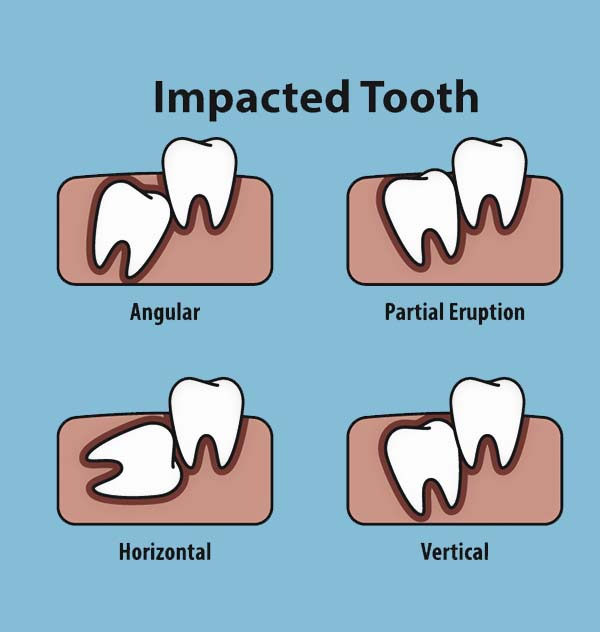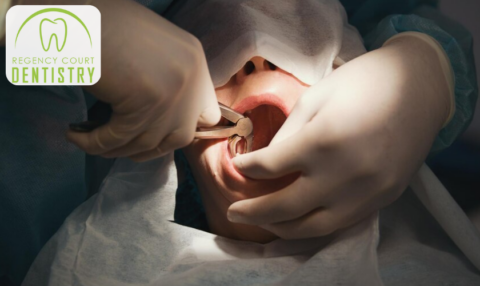Discovering Different Sedation Options for a Comfy Wisdom Pearly Whites Removal Experience
The usage of sedation during such treatments has actually ended up being increasingly usual to minimize stress and anxiety and discomfort. With an array of sedation options readily available, from local anesthetic to general anesthetic, each technique offers varying degrees of relaxation and pain control.
Regional Anesthetic
Neighborhood anesthesia is a frequently made use of technique for numbing certain locations of the mouth during wisdom teeth extraction treatments. By administering a regional anesthetic, such as lidocaine, a dentist can make sure that the person remains comfortable and pain-free throughout the extraction process.
Among the key advantages of local anesthetic is its targeted numbing result, which means that only the specific location being dealt with is affected. This localized method minimizes the danger of systemic side impacts and permits a quicker healing post-procedure. Furthermore, local anesthesia is thought about to be a regular and risk-free practice in dentistry, with minimal dangers entailed when provided by a qualified expert.
Nitrous Oxide
Nitrous oxide, generally referred to as giggling gas, is a type of sedation usually used in dentistry to aid patients relax throughout dental procedures. It is a safe and reliable method that entails breathing in a mix of nitrous oxide and oxygen with a mask put over the nose. One of the key advantages of nitrous oxide is its quick beginning of action, generally within mins, providing almost prompt leisure for the client. This sedation option allows the person to continue to be mindful and receptive throughout the procedure while really feeling secure and comfortable.
Furthermore, laughing gas is understood for its rapid healing time. Once the mask is eliminated, the effects of the gas diminish quickly, allowing people to resume their typical tasks without sticking around sedative effects. This makes laughing gas a hassle-free choice for those that require to drive themselves home after the dental visit. Nitrous oxide is suitable for clients of all ages, making it a functional sedation choice for wisdom teeth extractions and various other oral treatments.
Oral Sedation
Oral sedation, a medicinal technique employed in dentistry, entails the management of sedative medicines by mouth to induce a loosened up state throughout oral procedures. The medications suggested for oral sedation belong to a class of drugs called benzodiazepines, which have sedative, anxiolytic, and amnesic residential properties.
Among the key benefits of dental sedation is its simplicity of administration. Unlike intravenous sedation, dental sedation does not require injections or needles, making it a more comfy choice for people with a worry of needles. Additionally, dental sedation is taken into consideration safe and effective when carried out by trained oral experts. It is essential for individuals to follow pre-operative directions provided by their dental practitioner, such as abstaining from consuming or consuming before the treatment to ensure the sedative medicine functions as meant.
IV Sedation
Provided intravenously by experienced physician, IV sedation is a powerful technique made use of to generate a regulated state of deep relaxation and unconsciousness throughout oral procedures. Unlike dental sedation, which can be uncertain in its effects, IV sedation allows for precise control over the degree of sedation, making it an optimal selection for intricate treatments like knowledge teeth extractions.
During IV sedation, a sedative medication is provided directly into the bloodstream with a capillary, enabling it to take result promptly and successfully. This approach makes sure that the client stays unaware and comfortable of the procedure while still preserving important functions such as breathing and heart go to my blog price.
Among the key benefits of IV sedation is its capability to supply a much deeper degree of sedation contrasted to various other techniques, making it particularly suitable for patients with high degrees of stress and anxiety or those undergoing considerable oral job (wisdom teeth removal aspendale). Additionally, the impacts of IV sedation normally wear off progressively after the procedure, lowering the probability of grogginess or sticking around side effects. On the whole, IV sedation uses a risk-free and effective choice for ensuring a comfy and hassle-free experience during wisdom teeth removal

General Anesthetic
Having actually talked about the advantages of IV sedation for wisdom teeth removal, the utilization of general anesthetic offers a different option for clients requiring a much deeper level of unfamiliarity throughout dental treatments. General anesthetic induces a regulated state of unconsciousness, guaranteeing the patient feels no discomfort or pain throughout the removal procedure. This technique is specifically useful for individuals with severe dental anxiety, complex medical demands, or those undergoing numerous extractions all at once.
General anesthetic is administered by a skilled anesthesiologist that closely keeps an eye on the person's vital indications throughout the treatment. It entails making use of intravenous medications or breathed in gases to generate a state of unfamiliarity. While This Site under basic anesthetic, the person will not recognize the surgery, experience any discomfort, or have any kind of recollection of the procedure afterward.
Although general anesthesia is risk-free when administered by qualified experts, it brings a slightly higher threat contrasted to various other sedation alternatives - wisdom teeth removal aspendale. Patients thinking about general anesthesia for wisdom teeth extraction should review the prospective dangers and benefits with their dental expert or oral surgeon to make an informed decision based upon their specific requirements and medical history

Final Thought
In final thought, various sedation choices are readily available to make certain a comfy wisdom teeth removal experience. Dental sedation and IV sedation deal deeper degrees of relaxation, depending on the patient's needs.
Nitrous oxide is suitable for people of all ages, making it a flexible sedation alternative for wisdom teeth extractions and other oral procedures.
